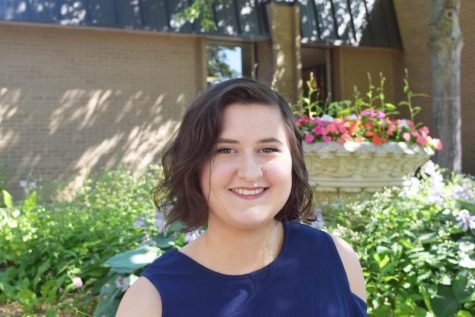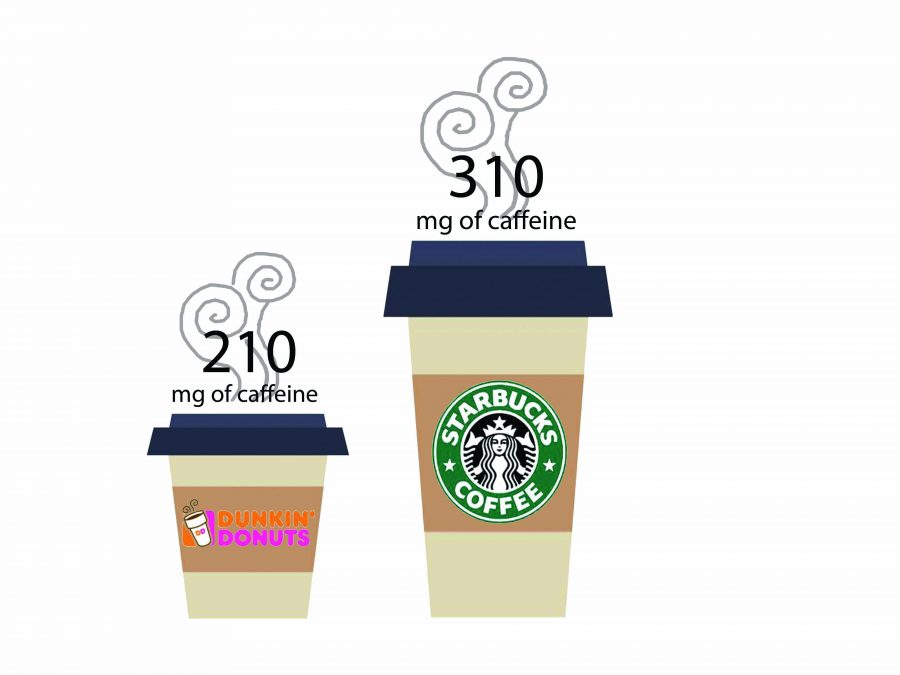Caffeine Craze
Teens don’t just tolerate it, they depend on coffee
School necessities include a backpack, folders, some pencils and for 56 percent of LZHS students, a cup of coffee.
About 90 percent of average Americans intake caffeine everyday, making it America’s most popular drug, according to villanova.edu. Sales for coffee shops like Starbucks and Dunkin’ Donuts are at the highest they have ever been.
“I drink coffee everyday, twice a day,” Rachel Moore, a sophomore and avid coffee drinker, said. “I started drinking coffee in middle school once a day and just recently have felt the need to drink two cups a day in order to keep my energy up.”
Moore feels she is dependent on coffee and the caffeine within it which has caused her to develop a tolerance . Overtime, this has caused her to increase the amount of coffee she consumes every day.
“In the long term, the person is going to eventually develop a tolerance or even craving for more of the substance: some days wanting twice as much, some days not requiring that much,” Lily Eckert, health teacher, said. “Their daily habit[s] will keep rising gradually until they are using more than they can safely take without negative effects.”
The majority of teenagers drink coffee because it either energizes them or it helps them focus, Eckert said.
“I feel energized and awake after my morning coffee,” Casey Majewski, junior and avid coffee drinker, said. “I sometimes have a second coffee from Starbucks later in the afternoon if I feel like I need it. It depends on how awake I am that day and how well I slept the previous night.”
Contrary to Majewski’s thoughts, health officials from sleepfoundation.org warn that caffeine does not replace quality sleep. The average teenger needs 10-12 hours of sleep even though caffeine can provide, on average, six hours of energy. The “caffeine crash” that follows could affect the natural chemical balance in a human’s brain causing their sleep patterns to be thrown off and can cause a bad night’s sleep.
“A lot of people will use coffee or some type of caffeinated drink in order to avoid having to sleep and even go a night without sleep, but the body absolutely requires sleep,” Eckert said. “There’s something that the brain requires from sleep every single day and when a person is depriving themselves from that sleep, they’re not going to be able to perform without having some problems.”
About 16 percent of the 70 students who responded to the survey report they drink one coffee a day or more to feel awake and focused, Eckert said, will lead to a tolerance similar to more severe ones like alcoholism.
“The tolerance that people developed for alcohol is very similar to the way a person would develop a tolerance for caffeine,” Eckert said. “In most cases, you can gain a tolerance or dependency on caffeine in a couple of weeks to the point where you will have withdrawal effects if you stop using it.”
As Moore experiences these withdrawals when she does not have her cups of coffee, she still strongly believes she’s not addicted. However, she also thinks that, in moderation, coffee should not be that bad for someone’s health.
“I think in moderation, coffee is okay to have,” Majewski said “I do think teenagers drink a lot of coffee in substitution for sleep some days, [but] as long as it’s not on a consistent basis, I don’t think it affects students that much.”

This will be Rachel's third year on staff. After being a staff writer for two years, she has been given the opportunity this year to take on the responsibilities...

